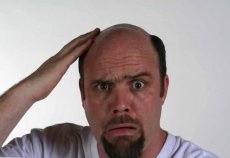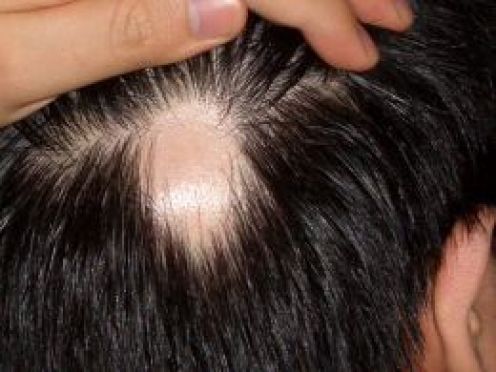New publications
Named the most effective remedies for hair loss
Last reviewed: 01.07.2025

All iLive content is medically reviewed or fact checked to ensure as much factual accuracy as possible.
We have strict sourcing guidelines and only link to reputable media sites, academic research institutions and, whenever possible, medically peer reviewed studies. Note that the numbers in parentheses ([1], [2], etc.) are clickable links to these studies.
If you feel that any of our content is inaccurate, out-of-date, or otherwise questionable, please select it and press Ctrl + Enter.

This problem can torment both men and women, it is not customary to talk about it, but it still exists and requires treatment. Let's figure out why hair loss occurs, what it is associated with and what types of treatment exist.
According to sociological surveys, 38% of women and 66% of men suffer from baldness.
People face this problem for various reasons. It can be postpartum hair loss, menopause, various diseases, radiation therapy or taking medications. However, as a rule, after some time everything returns to normal and normal hair growth is restored. If hair loss is not associated with the above-mentioned reasons, then a visit to a trichologist is inevitable. Depending on the preliminary examination, the doctor will give a referral for tests to find out what exactly caused the hair loss.
If the cause is a hormonal imbalance - androgenetic alopecia, or a nutritional deficiency, then the doctor can prescribe medications that correct these disruptions in the body.
Minoxidil
Minoxidil is suitable for both men and women. This product is applied directly to the scalp to stimulate the growth of hair follicles. With this drug, hair loss slows down and even new hairs appear. The effect of the drug is best seen in the crown area. However, you should be careful not to apply it to the face and neck, otherwise it will lead to hair appearing in unwanted places. Treatment with this drug requires long-term use.
Finasteride
This drug targets the hormone testosterone and stops its conversion to dihydrotestosterone, a metabolite of testosterone. This ensures that the hair follicles regain their original strength. This drug is safe not only for men, but also for women during menopause.
 [ 1 ], [ 2 ], [ 3 ], [ 4 ], [ 5 ], [ 6 ]
[ 1 ], [ 2 ], [ 3 ], [ 4 ], [ 5 ], [ 6 ]
Dutasteride
Like Finasteride, Dudasteride works by blocking testosterone metabolites. Research results show that taking this drug has a positive effect on overall hair health and reduces the number of bald spots. Unlike other hair loss medications, Dutasteride is able to block both forms of dihydrotestosterone, making it more effective than other drugs.
 [ 7 ], [ 8 ], [ 9 ], [ 10 ], [ 11 ], [ 12 ]
[ 7 ], [ 8 ], [ 9 ], [ 10 ], [ 11 ], [ 12 ]
Bimatoprost
This drug is mainly used to improve hair growth. However, its effectiveness in treating hair loss on the scalp has not yet been established.
If you suffer from alopecia areata, a rather rare disease, then the situation is somewhat more complicated. This disease is characterized by unpredictable manifestations: It can last for a long period of time and lead to complete baldness in certain areas of the body and head, or it can suddenly stop and then start again. With alopecia areata, a person's hair seems to live independently, sometimes leaving the head, sometimes growing again.

Unfortunately, there is no medicine that can quickly and effectively stop this process, but there are a number of ways in which you can achieve some effect.
- use of non-specific immunosuppressants;
- direct effect on hair follicles;
- experimental therapy;
- alternative treatments.
